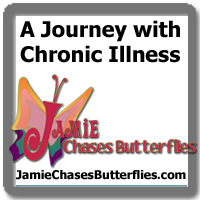In this article we are going talk about a painful topic: Miscarriage Signs, Symptoms & Treatment. Pregnancy is a blessing that brings so much anticipation; because of the commonality of miscarriage it is wise to be educated about miscarriage in the case that you or someone that you love must go through this experience. We hope that you find the information in this article helpful.
Definition: Miscarriage is a term used to describe a pregnancy that ends on its own, within the first 20 weeks of gestation. Sometimes miscarriage is referred to as a spontaneous abortion.
-
- Miscarriage is the most common type of pregnancy loss
- 10-25% of all clinically recognized pregnancies will end in miscarriage
- 50-75% of miscarriages are related to chemical pregnancy, or when a fertilized egg implants on the uterine wall but dies before it can develop
- Most miscarriages take place in the first 13 weeks of pregnancy; more than 80% of miscarriages happen before 12 weeks
- Miscarriage is often a process with many stages and causes
- If pregnancy continues to 6 weeks, the odds of miscarriage drops significantly and continues to decrease with each passing week
- Women who have previously experienced a miscarriage have a slightly greater chance of going through another pregnancy loss
- Chance of miscarriage rises with each pregnancy
Types of Miscarriage
- Threatened Miscarriage: Often caused by improper implantation of the egg into the uterine lining; women experience some degree of bleeding and cramping or lower backache while the cervix remains closed.
- Inevitable or Incomplete Miscarriage: Caused by dilation or effacement of the cervix and/or rupture of the membranes; women will experience abdominal or back pain and bleeding.
- Complete Miscarriage: Uterus is emptied of embryo or products of conception. Bleeding and cramping or pain will go away quickly. A complete miscarriage can be confirmed by an ultrasound or D&C.
- Missed Miscarriage: Sudden loss of pregnancy symptoms and absence of fetal heart beat during an ultrasound. Often women will not realize they have miscarried.
- Recurrent Miscarriage: 3 or more consecutive first trimester miscarriages.
- Blighted Ovum or Embryonic Pregnancy: A fertilized egg implants into the uterine wall but that fetus either stops or never develops; however a sac forms.
- Ectopic Pregnancy: A fertilized egg implants on the fallopian tube or a place other than the uterus; causes serious complications for the mother; requires rapid treatment.
- Molar Pregnancy: Rarely involving a developing embryo, this type of pregnancy is due to a genetic error that leads to abnormal tissue growth within the uterus coinciding with missed period, positive pregnancy test and severe nausea.
Causes of Miscarriage
Any woman can lose a pregnancy but some women have greater chance at miscarriage. Reasons for miscarriage include:
- Chromosomal abnormality – This is the most common reason for a miscarriage. It is caused by a damaged egg or sperm cell or abnormal development of the fertilized egg. Most common during the first trimester.
- Lifestyle concerns in both mother and father: smoking, drug use, malnutrition, excessive caffeine (more than 1 cup per day), exposure to radiation or toxic substances
- Improper implantation of the egg into the uterine lining
- Maternal age:
- Most healthy women have a 10-25% chance of miscarriage.
- As women age their chance of miscarriage increases.
- Women 35-45 years of age have a 20-35% chance of miscarriage.
- Women over the age of 45 have a 50% chance of miscarriage.
- Maternal trauma
- Chronic illness – Diabetes or certain blood clotting disorders, hormonal disorders and autoimmune disorders are some conditions that increase the risk of miscarriage.
- Uterine or cervical problems or infections
- Family history of genetic problems and birth defects
- Some medications are linked to increased risk of miscarriage
- There is a higher risk of miscarriage in pregnancies that occur within 3 months after giving birth.
Usually, healthcare practitioners will not do a full-scale workup on a healthy woman after a single miscarriage, so the true cause of a miscarriage is not known most of the time; often even after detailed evaluations are performed the cause may remain unknown. The best person to answer any questions about miscarriage is your primary doctor or OBGYN.
Symptoms of Miscarriage
- Spotting or bleeding with or without pain
- Back pain that often feels worse than normal menstrual cramps
- Weight loss
- White-pink mucus discharge
- True contractions that are painful and happen every 5-20 minutes
- Tissue with clot like material passing from the vagina
- Sudden decrease in signs of pregnancy
- Fever and chills
What to do
It is important that a pregnant women experiencing any or all of these symptoms contact their doctor right away. Practitioners will check the uterus and see if the bleeding is coming from the cervix. They may order blood tests to check that hCG levels are rising as they should. An ultrasound may also be ordered.
Not all women who experience spotting or cramping experience a miscarriage.
In the 2nd trimester, if an ultrasound shows the cervix is shortening or opening, a cerclage may be performed, where the cervix is stitched closed in an attempt to prevent miscarriage.
Bedrest is also prescribed to women who may be showing signs of a possible miscarriage. Sex doesn’t cause miscarriage but when women are experiencing bleeding and cramping, it is best to abstain.
Women who may be experiencing light bleeding and cramping should use a sanitary pad, but not tampons. She may use acetaminophen for pain as long as her doctor agrees. If she is miscarrying, the bleeding and cramping will probably get worse right before the product of conception (placenta, fetal tissue) which is grayish and may include blood clots, passes. If possible, this tissue should be saved in a clean container for lab testing.
A woman who believes she may be miscarrying should not drive herself to the hospital or doctor’s office. Having a person or a team of persons to help with transportation in case of emergency is a really smart idea for any women who is pregnant.
Treatment of Miscarriage
Controlling hemorrhaging and infection are the main treatment for miscarriage. If miscarriage happens early in pregnancy it is more likely that all fetal tissue will be expelled naturally. If the body does not expel all the tissue, a dilation and curettage or D&C will be performed and drugs may be prescribed to help control bleeding. Women experiencing an increase in bleeding or the chills and fever, after a miscarriage should call their doctor right away.
Preventing Miscarriage
Being as well as you can is the best way to provide a healthy a body for conception to happen and a healthy baby to grow. Being well includes:
- Regular exercise
- Healthy eating
- Productive stress management
- Maintaining a healthy weight
- Take folic acid supplementation daily
- Do not smoke or be around people who are smoking
- Keep your abdomen safe
- Do not drink alcohol
- Follow through with regular check-ups
- Speak with your primary doctor before taking over-the-counter medications
- Limit or eliminate caffeine
- Avoid radiation, infectious disease, x-rays and other environmental hazards
- Avoid contact sports or activities with high risk of injury
When pregnant, if spotting or bleeding occurs, you may need a shot of Rh immune globulin within 2-3 days, if your blood is Rh-negative, unless the father’s blood is also Rh-negative.
After Miscarriage
Once the tissue has been passed or removed, women who have had a miscarriage will have menstrual-like cramps for a couple days and light bleeding for up to 2 weeks. She should use pads instead of tampons and avoid sex, swimming, douching and using vaginal medications for at least a couple weeks and until bleeding has stopped. Ibuprofen or acetaminophen can be taken for cramps.
If bleeding becomes heavy or signs of infection (fever, chills or foul-smelling discharge) or dizziness, weakness or lightheadedness become apparent call 911 and have someone else drive the woman to the ER. If there is no one to drive her, the woman should call an ambulance or cab.
Miscarriage is a very difficult time for families. There are many questions about physical and emotional recovery and when to try to become pregnant again. Women, and often times their partner, must keep the lines of communication open with family and friends and be honest with health care providers. It is important to take the time to examine feelings and what feels right for the mother and her partner. If support groups are available in the area it may be a good idea to visit them or see a therapist if the feelings of loss and sadness are overwhelming.
When she feels ready to try to conceive again, a women may want to work with her doctor to lower her risks of another miscarriage. Many women who have experienced miscarriage go on to have healthy babies in the future. Women should wait until after 1 menstrual cycle to 3 months have completed before attempting to conceive again. This allows more time for emotional and physical healing. Women should use birth control to prevent conception during this time since ovulation may happen as early as 2 weeks following a miscarriage.
Ask Dear Jamie to Research a TopicOther Resources
- AmericanPregnancy.org: Miscarriage: Signs, Symptoms, Treatment and Prevention
- APlaceToRemember.com
- BabyCenter.com:Miscarriage: Signs, causes, and treatment
- March of Dimes: Dealing with Your Grief
- March of Dimes: Miscarriage
- MedlinePlus: Cervix Disorders
- MedlinePlus: Polycystic Ovary Syndrome
- MedlinePlus: Uterine Diseases
- MedlinePlus: Vaginal Bleeding
- Mend.org
- Parents: What Does — and Doesn’t — Cause Miscarriage
- ParentWeekly.com: Missed Miscarriage, Blighted Ovum, and Chemical Pregnancy
- WebMD: Pregnancy and Miscarriage
 Summer D Clemenson co-owns Clemenson Enterprises and Wellness Works NW with her wife, Karen G Clemenson. Their personal motto is Creativity, Honesty & Positivity are a must! This mantra helps them stay community and wellness minded in all they do. Summer also writes poetry and inspirational blogs @ ClemensonEnterprises.com. Her crochet art can be viewed and purchased @ KnottyWares.com & she loves special orders!
Summer D Clemenson co-owns Clemenson Enterprises and Wellness Works NW with her wife, Karen G Clemenson. Their personal motto is Creativity, Honesty & Positivity are a must! This mantra helps them stay community and wellness minded in all they do. Summer also writes poetry and inspirational blogs @ ClemensonEnterprises.com. Her crochet art can be viewed and purchased @ KnottyWares.com & she loves special orders!



 Please wait...
Please wait...

